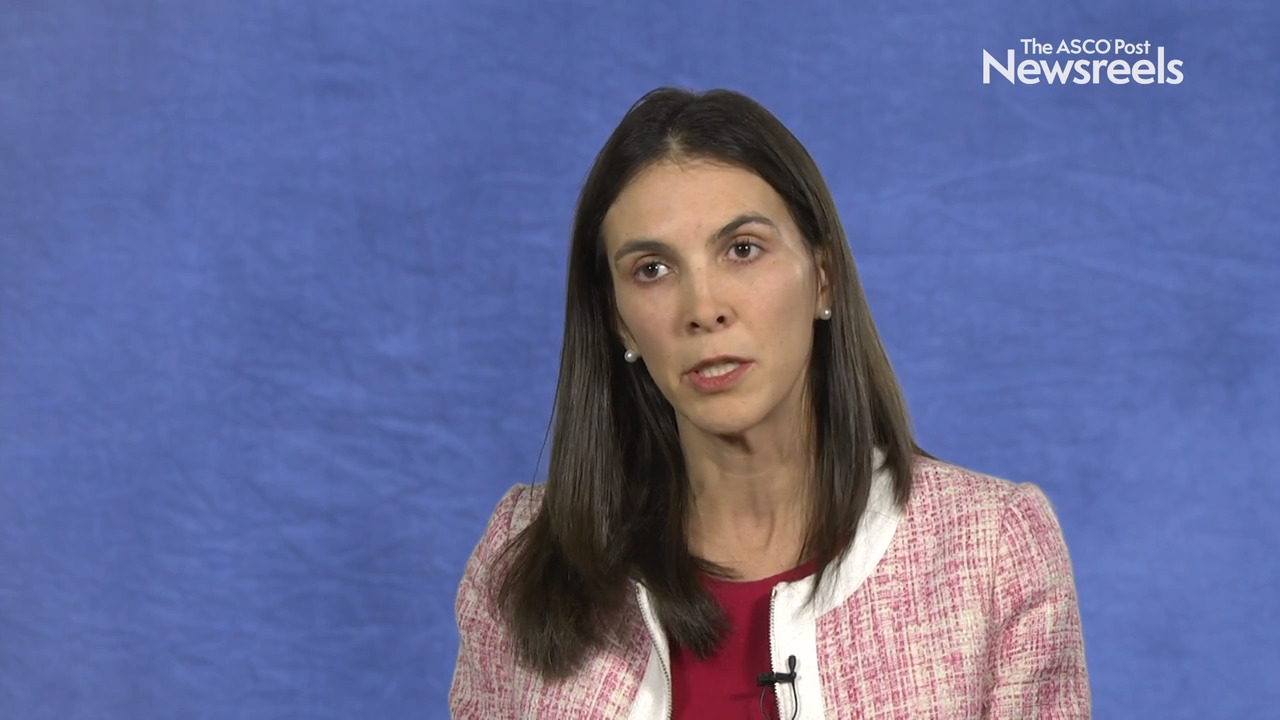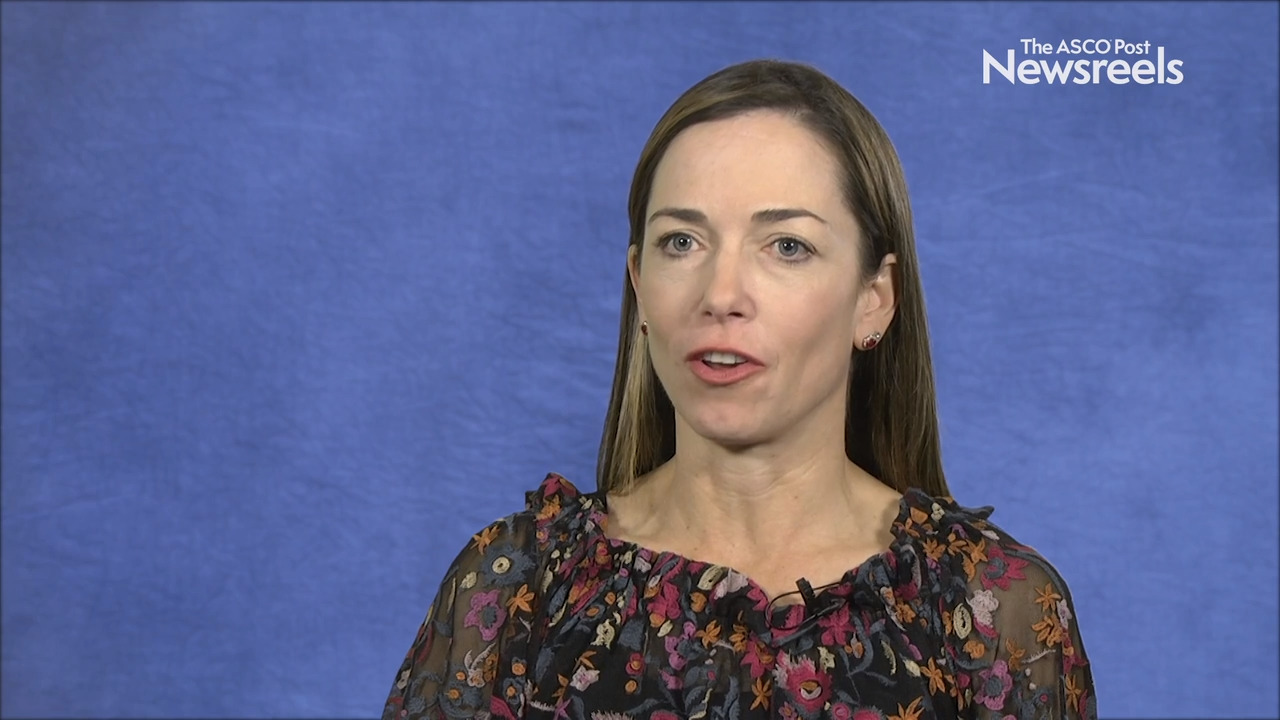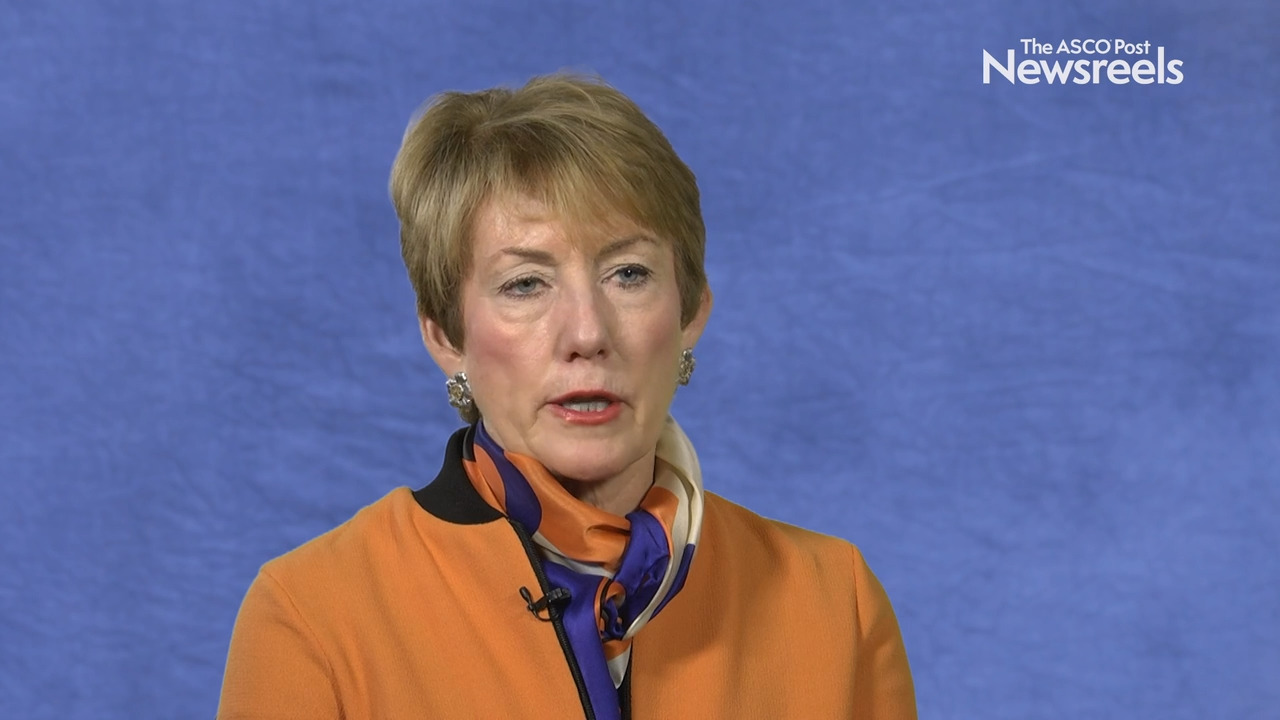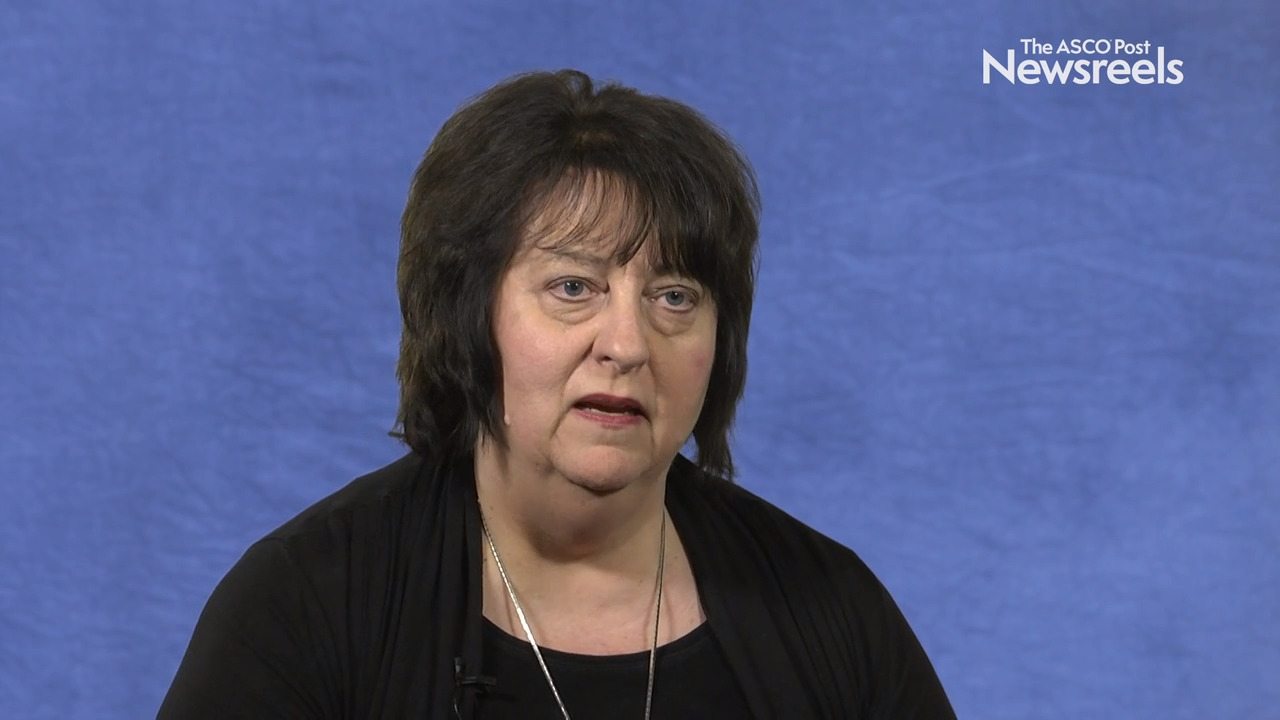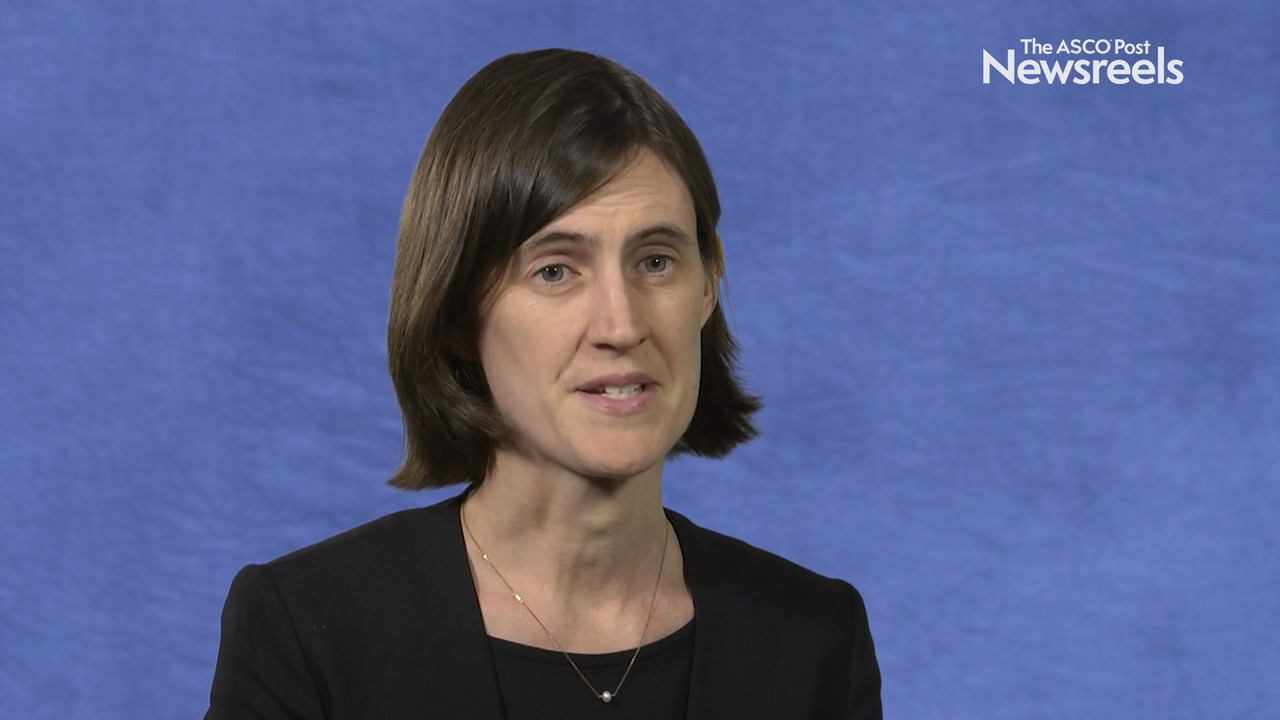Shom Goel, MD, PhD, on Breast Cancer: Impact of CDK4/6 Inhibitors on Immunity
2018 San Antonio Breast Cancer Symposium
Shom Goel, MD, PhD, of the Dana-Farber Cancer Institute, discusses preclinical data that suggest CDK4/6 inhibitors not only stop the growth of breast cancer cells, but also enhance antitumor immunity, a phenomenon that might help improve outcomes for people with advanced disease.
Kathryn J. Ruddy, MD, MPH, of the Mayo Clinic, summarizes a special spotlight session that included discussion of interventions to improve quality of life and the importance of lifestyle in the prevention of cancer and cancer recurrence.
Sara A. Hurvitz, MD, of the University of California, Los Angeles, discusses the natural history and novel combinations for HER2-positive disease as well as predictive and prognostic markers for this type of breast cancer.
Monica Morrow, MD, of Memorial Sloan Kettering Cancer Center reviews lessons learned from top abstracts, including how to tailor the extent of local therapy to minimize morbidity, the diminishing role of axillary lymph node dissection, long-term sequelae of breast surgical procedures, and the need to discuss outcomes with patients.
Kathy S. Albain, MD, of Loyola University Stritch School of Medicine, discusses study findings on race, ethnicity, and patient outcomes in hormone receptor–positive, HER2-negative, node-negative breast cancer (Abstract GS4-07).
Roisin M. Connolly, MD, of the Sidney Kimmel Comprehensive Cancer Center at Johns Hopkins, discusses clinical trials during the past year on studies on CDK and PI3K inhibitors in estrogen receptor–positive breast cancer and immune checkpoint agents in triple-negative breast cancer.
